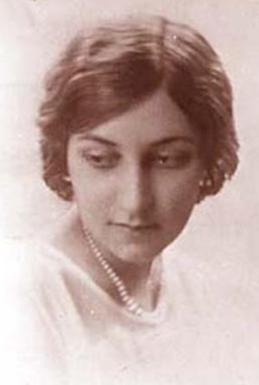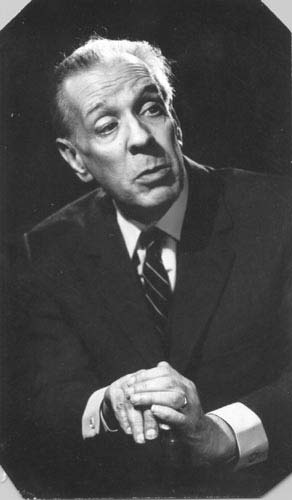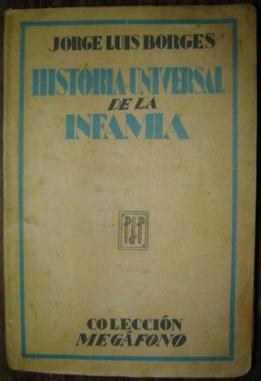Related Research Articles

Jorge Francisco Isidoro Luis Borges Acevedo was an Argentine short-story writer, essayist, poet and translator regarded as a key figure in Spanish-language and international literature. His best-known books, Ficciones (transl. Fictions) and El Aleph, published in the 1940s, are collections of short stories exploring motifs such as dreams, labyrinths, chance, infinity, archives, mirrors, fictional writers and mythology. Borges's works have contributed to philosophical literature and the fantasy genre, and have had a major influence on the magic realist movement in 20th century Latin American literature.
"Tlön, Uqbar, Orbis Tertius" is a short story by the 20th-century Argentinian writer Jorge Luis Borges. The story was first published in the Argentinian journal Sur, May 1940. The "postscript" dated 1947 is intended to be anachronistic, set seven years in the future. The first English-language translation of the story was published in 1961.

"The Library of Babel" is a short story by Argentine author and librarian Jorge Luis Borges (1899–1986), conceiving of a universe in the form of a vast library containing all possible 410-page books of a certain format and character set.

Adolfo Bioy Casares was an Argentine fiction writer, journalist, diarist, and translator. He was a friend and frequent collaborator with his fellow countryman Jorge Luis Borges. He is the author of the Fantastique novel The Invention of Morel.
H. Bustos Domecq is a pseudonym used for several collaborative works by the Argentine writers Jorge Luis Borges and Adolfo Bioy Casares.

Martín Fierro, also known as El Gaucho Martín Fierro, is a 2,316-line epic poem by the Argentine writer José Hernández. The poem was originally published in two parts, El Gaucho Martín Fierro (1872) and La Vuelta de Martín Fierro (1879). The poem supplied a historical link to the gauchos' contribution to the national development of Argentina, for the gaucho had played a major role in Argentina's independence from Spain.

Leonor Fanny "Norah" Borges Acevedo, was an Argentine visual artist and art critic, member of the Florida group, and sister of the Argentine writer Jorge Luis Borges.

Ficciones is a collection of short stories by Argentine writer and poet Jorge Luis Borges, originally written and published in Spanish between 1941 and 1956. Thirteen stories from Ficciones were first published by New Directions in the English-language anthology Labyrinths (1962). In the same year, Grove Press published the entirety of the book in English using the same title as in the original language. "The Approach to Al-Mu'tasim" originally appeared published in A History of Eternity (1936). Ficciones became Borges's most famous book and made him known worldwide.

Emir Rodríguez Monegal, born in Uruguay, was a scholar, literary critic, and editor of Latin American literature. From 1969 to 1985, Rodríguez Monegal was professor of Latin American contemporary literature at Yale University. He is usually called by his second surname Emir R. Monegal or Monegal.

This is a bibliography of works by Argentine short-story writer, essayist, poet, and translator Jorge Luis Borges (1899–1986).
"The Secret Miracle" is a short story by Argentine writer and poet Jorge Luis Borges. The story focuses on an author condemned to death. At the moment of his execution, time freezes, allowing him to finish his masterpiece, though only within his own mind.

Juan José Arreola Zúñiga was a Mexican writer, academic, and actor. He is considered Mexico's premier experimental short story writer of the 20th century. Arreola is recognized as one of the first Latin American writers to abandon realism; he used elements of fantasy to underscore existentialist and absurdist ideas in his work. Although he is little known outside Mexico, Arreola has served as the literary inspiration for a legion of Mexican writers who have sought to transform their country's realistic literary tradition by introducing elements of magical realism, satire, and allegory. Alongside Jorge Luis Borges, he is considered one of the masters of the hybrid subgenre of the essay-story. Arreola is primarily known for his short stories and he only published one novel, La feria.

Macedonio Fernández was an Argentine writer, humorist and philosopher. His writings included novels, stories, poetry, journalism, and works not easily classified. He was a mentor to Jorge Luis Borges and other avant-garde Argentine writers. Seventeen years of his correspondence with Borges was published in 2000. His published poetry includes "Creía yo".
Latin American literature consists of the oral and written literature of Latin America in several languages, particularly in Spanish, Portuguese, and the indigenous languages of the Americas. It rose to particular prominence globally during the second half of the 20th century, largely due to the international success of the style known as magical realism. As such, the region's literature is often associated solely with this style, with the 20th century literary movement known as Latin American Boom, and with its most famous exponent, Gabriel García Márquez. Latin American literature has a rich and complex tradition of literary production that dates back many centuries.
Luis Melián Lafinur was a Uruguayan jurist, essayist, professor and politician. He was the son of Bernardo Melián and Florencia Lafinur. His son was the Argentine poet Álvaro Melián Lafinur.

A Universal History of Infamy, or A Universal History of Iniquity, is a collection of short stories by Argentine writer Jorge Luis Borges, first published in 1935, and revised by the author in 1954. Most were published individually in the newspaper Crítica between 1933 and 1934. Angel Flores, the first to use the term "magical realism", set the beginning of the movement with this book.
"The Wait" is a 1950 short story by Argentine writer Jorge Luis Borges. It was published in the collection The Aleph. David Foster Wallace referred to the story as "marvelous".

The Book of Sand is a 1975 short story collection by Argentine writer Jorge Luis Borges. In the author's opinion, the collection, written relatively late in his career — and while blind — is his best book. This opinion is not shared by most critics, many of whom prefer his other works such as those in Ficciones (1944).

A Uruguayan Argentine is an Argentine citizen of Uruguayan descent or a Uruguay-born person who resides in Argentina. As of 2012, there were over 116,000 Uruguayans living in Argentine territory.
"Man on Pink Corner" is a short story by Argentine writer and poet Jorge Luis Borges. It is the first of several stories he wrote concerning duels between knife-fighters, which Borges recognized as one of his archetypal themes. "The story is one I have been retelling, with small variations, ever since. It is the tale of the motiveless, or disinterested, duel—of courage for its own sake."
References
- 1 2 3 Borges, Jorge (1999) [1975]. El libro de arena (in Spanish). Madrid, Spain: Alianza Editorial S.A. ISBN 84-206-3313-5. OCLC 40141633.
- 1 2 Dumain, Ralph (15 August 2006). "On "The Congress" by Jorge Luis Borges: Observations and Questions" . Retrieved 18 February 2010.
- ↑ Ministerio de Educación de la Nación, Subsecretaría de Coordinación Administrativa, Dirección de Gestión Informática (2001). "Jorge Luis Borges:Biografía". Jorge Luis Borges: 24 de agosto de 1899 - 14 de junio 1986 (in Spanish). Agencia "El Vigía". Retrieved 18 February 2010.
{{cite web}}: CS1 maint: multiple names: authors list (link) - ↑ Junta de Andalucía; Consejería de Cultura (14 October 2008). "El Aleph: Jorge Luis Borges" (PDF) (in Spanish). Retrieved 18 February 2010.
- ↑ (in Spanish) Google books: "La crítica del mito: Borges y la literatura como sueño de vida", by Daniel Nahson